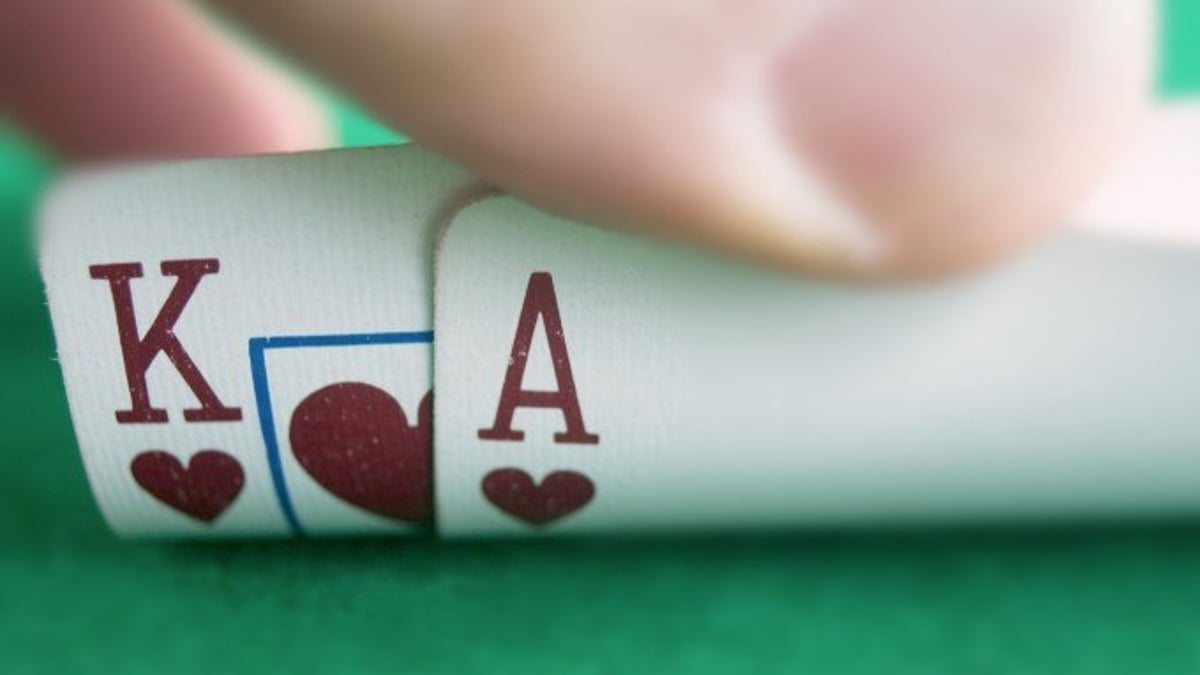Henry Orenstein, Holocaust Survivor and Inventor of Poker's Hole Card Camera, Dies at 98

Without any debate, whatever popularity poker enjoys today it owes in large part to Henry Orenstein.
Certainly, the Everyman champion from Tennessee, Chris Moneymaker, justifiably gets credit for jump-starting the poker boom with his 2003 World Series of Poker Main Event victory that still echoes today. But without Orenstein, no one would have appreciated the drama of amateur Moneymaker’s famous bluff of shrewd card pro Sammy Farha that paved the way for the startling upset win.
You see, what fascinated the viewing public was knowing that Moneymaker, facing the polished, slickly coiffed Farha in head-to-head competition 11 hours into the final table, merely had a King-7 that amounted to nothing compared to Farha’s pair of 9s on an all-in bluff on the river. Viewers watched the usually unflappable Farha squirm, nervously chat a bit, and then crack, folding the winning hand.
It was that drama that captivated millions of viewers as the tournament aired over and over — and the man who made it happen was Orenstein, a Holocaust survivor and a man of imagination.
He came up with and patented the concept of a tiny camera that revealed to TV watchers the hole cards of poker players. Until Orenstein’s hole-card camera, televised poker was excruciatingly dull as the audience had to wait for a showdown to see what hand the players held. With the tiny camera, TV audiences had a window into the poker strategy of the players.
Orenstein, who died Dec. 14 at 98, was no slouch himself when it came to poker. In 1996, at age 72, he won a WSOP bracelet in seven-card stud, earning $130,000. Then, in 2014 at the WSOP and at 90 years old, he finished eighth in a field of 102 runners, again in seven-card stud.
Surviving a Concentration Camp
However, Orenstein’s biggest bluff was decades earlier as he suffered at the hands of the Nazis in the Budzyn concentration camp. The Polish-born Orenstein and several dozen fellow prisoners were part of a group that the Nazis were fooled into believing were mathematical geniuses and were part of a ruse by German scientists who themselves were trying to evade conscription into the German war machine.
The scientists said they were overseeing the prisoners working on a secret project.
"The scientists would bring us ordinary grocery receipts and we would do nonsense arithmetic — addition, subtraction, multiplication and division — all day long," Orenstein said in a 2006 interview.
"We were playing for time," he added.
Orenstein and two brothers survived. Two siblings did not and his parents were killed.
A Marketer of Toys
Arriving in the U.S., he turned his attention to the marketing of toys. He came up with an idea for making dolls more appealing to children by packaging them in attractive boxes, having them displayed long before the holidays and letting mothers buy them, a dime a week, on layaway.
Later, he brought the concept of a Japanese toy to a major American toymaker, a car that could be rearranged into other shapes. It’s now known as the Transformers.
Orenstein is a member of the New Jersey Inventors Hall of Fame, whose inaugural membership includes Albert Einstein and Thomas Edison. And fittingly, Orenstein is in the Poker Hall of Fame, entering in 2008.
"I was once at the Bellagio waiting for a (poker) table to open and David Sklansky came up to me," Orenstein said referring to the famous author on poker theory and play, "and he said, 'Henry, this has all happened because of you.' "
A Man Who Gave Back
In addition to collecting royalties from the hole-card camera, Orenstein was a prolific producer of poker TV programming, including Poker Superstars, High Stakes Poker and the Intercontinental Poker Championship.
Apart from poker and toys, Orenstein was also recognized for his philanthropic work donating generously to programs for the needy young and elderly in Israel.
As was the case for the millions who suffered the horrors of the Holocaust, Orenstein carried that experience with him throughout his life. "The great lesson that I learned in the concentration camps was about humanity," Orenstein said in 2006, "and that has served me well."










